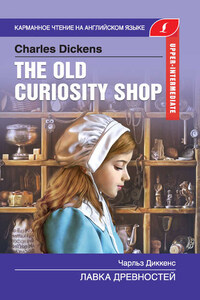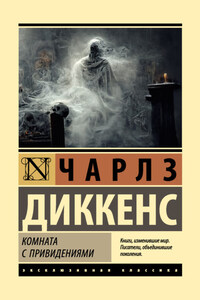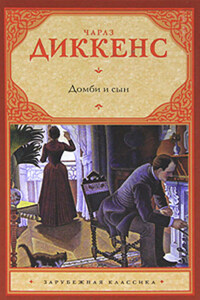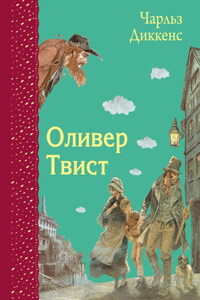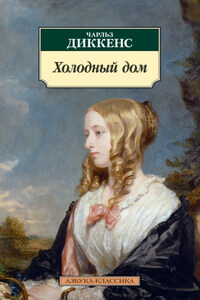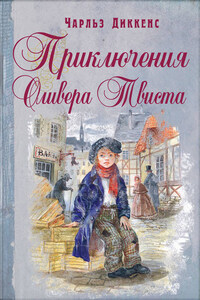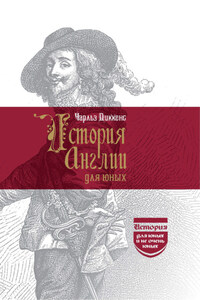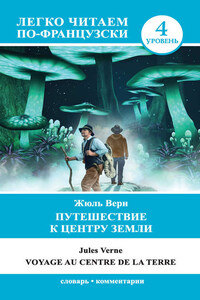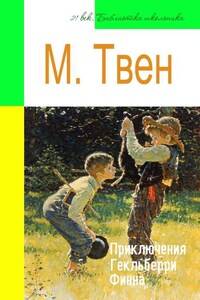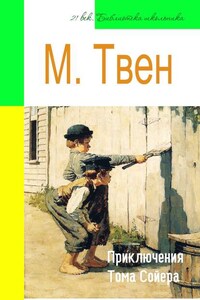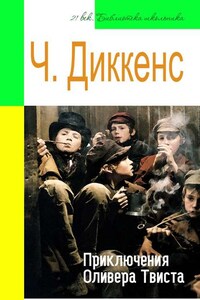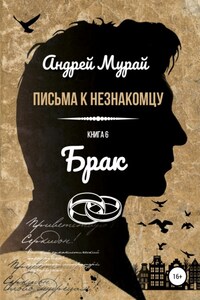A little girl stopped at a door and knocked at it. A part of this door was of glass, unprotected by any shutter. When she had knocked twice or thrice, there was a noise as if some person were moving inside. He was an old man with long grey hair, he held the light above his head and looked before him. There was something of that delicate mould which one could notice in the child. Their bright blue eyes were certainly alike, but his face was deeply furrowed.
The place was one of the receptacles for old and curious things. There were suits of mail standing like ghosts in armour, here and there; fantastic carvings from monkish cloisters; rusty weapons of various kinds; figures in china[1], and wood, and iron, and ivory; tapestry, and strange furniture. The old man was wonderfully suited to the place.
“Why bless thee, child,” said the old man pitting the girl on the head, “didn’t you miss your way? What if I had lost you, Nelly[2]?
“I will always find my way back to you, grandfather,” said the child boldly: “never fear.”
The child took a candle and tripped into her little room.
There was a knock at the door; and Nelly, bursting into a hearty laugh, said it was no doubt dear Kit[3] come back at last.
“Oh Nell!” said the old man. “You always laugh at poor Kit.”
The old man took up a candle and went to open the door. When he came back, Kit was at his heels[4]. Kit was a shock-headed shambling awkward lad with an uncommonly wide mouth, very red cheeks, a turned-up nose, and a very comical expression of face. He stopped short at the door, twirled in his hand a perfectly round old hat without any vestige of a brim.
“A long way, wasn’t it, Kit?” said the old man.
“Why then[5], it was a goodish stretch, master,” returned Kit.
“Did you find the house easily?”
“Why then, not over and above easy, master,” said Kit.
“Of course you have come back hungry?”
“Why then, you’re right, master,” was the answer.
The lad had a remarkable manner of standing sideways[6] as he spoke, and thrusting his head forward over his shoulder. Kit carried a large slice of bread and meat, and a mug of beer, into a corner.
“Ah!” said the old man, “Nell, I say, the time is coming when we shall be rich. It must come at last; a very long time, but it surely must come. It has come to other men who do nothing. When will it come to me?”
“I am very happy as I am, grandfather,” said the child.
“Tush, tush!” returned the old man, “The time must come, I am very sure it must.”
The girl cheerfully helped the old man with his cloak, and, when he was ready, took a candle to light him out[7]. The old man folded her in his arms and bade God bless her.
“Sleep soundly, Nell,” he said in a low voice,” and angels guard your bed! Do not forget your prayers, my sweet.”
“No indeed,” answered the child fervently, “they make me feel so happy!”
“That’s well; I know they do; they should,” said the old man. “Bless thee a hundred times! Early in the morning I shall be home.”
With this, they separated. The child opened the door. The old man’s figure was soon beyond her sight.
A young man stood lounging with his foot upon a chair, and regarded the old man with a contemptuous sneer. He was a young man of one-and-twenty; well made[8], and certainly handsome, though his manner and even his dress had a dissipated, insolent air.
“Here I am,” said the young fellow, “and here I shall stop, I tell you again that I want to see my sister!’’
“Your sister!” said the old man bitterly.
“Ah! You can’t change the relationship,” returned the other. “If you could, you’d have done it long ago. I want to see my sister, that you keep here, poisoning her mind with your sly secrets. I know you had the money you can hardly count. I want to see her; and I will.”
